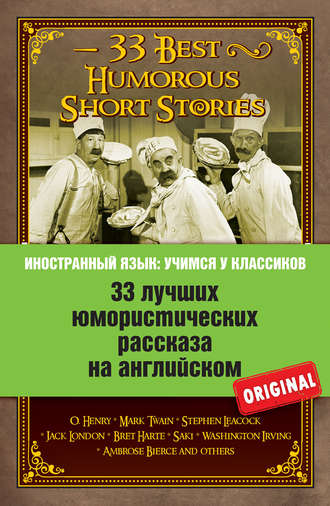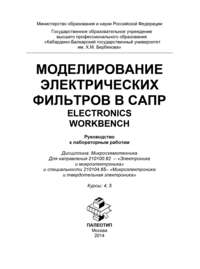
Полная версия
33 лучших юмористических рассказа на английском / 33 Best Humorous Short Stories
‘Impossible,’ said I.
‘Exactly my remark,’ returned Number 5010. ‘To which I added, “Hawley Hicks, it can’t be you”!’
‘“But it is me,” he replied.
‘And then I was convinced, for Hawley never was good on his grammar. I looked at him a minute, and then I said, “But, Hawley, I thought you were dead.”
‘“I am,” he answered. “But why should a little thing like that stand between friends?”
‘“It shouldn’t, Hawley,” I answered, meekly; “but it’s condemnedly unusual, you know, for a man to associate even with his best friends fifteen years after they’ve died and been buried.”
‘“Do you mean to say, Austin, that just because I was weak enough once to succumb to a bad cold, you, the dearest friend of my youth, the closest companion of my school-days, the partner of my childish joys, intend to go back on me here in a strange city?”
‘“Hawley,” I answered, huskily, “not a bit of it. My letter of credit, my room at the hotel, my dress suit, even my ticket to Coney Island, are at your disposal; but I think the partner of your childish joys ought first to be let in on the ground-floor of this enterprise, and informed how the deuce you manage to turn up in New York fifteen years subsequent to your obsequies. Is New York the hereafter for boys of your kind, or is this some freak of my imagination?”’
‘That was an eminently proper question,’ I put in, just to show that while the story I was hearing terrified me, I was not altogether speechless.
‘It was, indeed,’ said 5010; ‘and Hawley recognized it as such, for he replied at once.
‘“Neither,” said he. “Your imagination is all right, and New York is neither heaven nor the other place. The fact is, I’m spooking, and I can tell you, Austin, it’s just about the finest kind of work there is. If you could manage to shuffle off your mortal coil and get in with a lot of ghosts, the way I have, you’d be playing in great luck.”
‘“Thanks for the hint, Hawley,” I said, with a grateful smile; “but, to tell you the truth, I do not find that life is entirely bad. I get my three meals a day, keep my pocket full of coin, and sleep eight hours every night on a couch that couldn’t be more desirable if it were studded with jewels and had mineral springs.”
‘“That’s your mortal ignorance, Austin,” he retorted. “I lived long enough to appreciate the necessity of being ignorant, but your style of existence is really not to be mentioned in the same cycle with mine. You talk about three meals a day, as if that were an ideal; you forget that with the eating your labor is just begun; those meals have to be digested, every one of ’em, and if you could only understand it, it would appall you to see what a fearful wear and tear that act of digestion is. In my life you are feasting all the time, but with no need for digestion. You speak of money in your pockets; well, I have none, yet am I the richer of the two. I don’t need money. The world is mine. If I chose to I could pour the contents of that jeweller’s window into your lap in five seconds, butcui bono? The gems delight my eye quite as well where they are; and as for travel, Austin, of which you have always been fond, the spectral method beats all. Just watch me!”
‘I watched him as well as I could for a minute,’ said 5010; ‘and then he disappeared. In another minute he was before me again.
‘“Well,” I said, “I suppose you’ve been around the block in that time, eh?”
‘He roared with laughter. “Around the block?” he ejaculated. “I have done the Continent of Europe, taken a run through China, haunted the Emperor of Japan, and sailed around the Horn since I left you a minute ago.”
‘He was a truthful boy in spite of his peculiarities, Hawley was,’ said Surrennes, quietly, ‘so I had to believe what he said. He abhorred lies.’
‘That was pretty fast travelling, though,’ said I. ‘He’d make a fine messenger-boy.’
‘That’s so. I wish I’d suggested it to him,’ smiled my host. ‘But I can tell you, sir, I was astonished. “Hawley,” I said, “you always were a fast youth, but I never thought you would develop into this. I wonder you’re not out of breath after such a journey.”
‘“Another point, my dear Austin, in favor of my mode of existence. We spooks have no breath to begin with. Consequently, to get out of it is no deprivation. But, I say,” he added, “whither are you bound?”
‘“To Coney Island to see the sights,” I replied. “Won’t you join me?”
‘“Not I,” he replied. “Coney Island is tame. When I first joined the spectre band, it seemed to me that nothing could delight me more than an eternal round of gayety like that; but, Austin, I have changed. I have developed a good deal since you and I were parted at the grave.”
‘“I should say you had,” I answered. “I doubt if many of your old friends would know you.”
‘“You seem to have had difficulty in so doing yourself, Austin,” he replied, regretfully; “but see here, old chap, give up Coney Island, and spend the evening with me at the club. You’ll have a good time, I can assure you.”
‘“The club?” I said. “You don’t mean to say you visions have a club?”
‘“I do indeed; the Ghost Club is the most flourishing association of choice spirits in the world. We have rooms in every city in creation; and the finest part of it is there are no dues to be paid. The membership list holds some of the finest names in history – Shakespeare, Milton, Chaucer, Napoleon Bonaparte, Caesar, George Washington, Mozart, Frederick the Great, Marc Antony – Cassiuswas black-balledon Caesar’s account – Galileo, Confucius.”
‘“You admit the Chinese, eh?” I queried.
‘“Not always,” he replied. “But Con was such a good fellow they hadn’t the heart to keep him out; but you see, Austin, what a lot of fine fellows there are in it.”
‘“Yes, it’s a magnificent list, and I should say they made a pretty interesting set of fellows to hear talk,” I put in.
‘“Well, rather,” Hawley replied. “I wish you could have heard a debate between Shakespeare and Caesar on the resolution, ‘The Pen is mightier than the Sword;’ it was immense.”
‘“I should think it might have been,” I said. “Which won?”
‘“The sword party. They were the best fighters; though on the merits of the argument Shakespeare was ’way ahead.”
‘“If I thought I’d stand a chance of seeing spooks like that, I think I’d give up Coney Island and go with you,” I said.
‘“Well,” replied Hawley, “that’s just the kind of a chance you do stand. They’ll all be there to-night, and as this is ladies’ day, you might meet Lucretia Borgia, Cleopatra, and a few other feminine apparitions of considerable note.”
‘“That settles it. I am yours for the rest of the day,” I said, and so we adjourned to the rooms of the Ghost Club.
‘These rooms were in a beautiful house on Fifth Avenue; the number of the house you will find on consulting the court records. I have forgotten it. It was a large, broad, brown-stone structure, and must have been over one hundred and fifty feet in depth. Such fittings I never saw before; everything was in the height of luxury, and I am quite certain that among beings to whom money is a measure of possibility no such magnificence is attainable. The paintings on the walls were by the most famous artists of our own and other days. The rugs on the superbly polished floors were worth fortunes, not only for their exquisite beauty, but also for their extreme rarity. In keeping with these were the furniture and bric-a-brac. In short, my dear sir, I had never dreamed of anything so dazzlingly, so superbly magnificent as that apartment into which I was ushered by the ghost of my quondam friend Hawley Hicks.
‘At first I was speechless with wonder, which seemed to amuse Hicks very much.
‘“Pretty fine, eh?” he said, with a short laugh.
‘“Well,” I replied, in a moment, “considering that you can get along without money, and that all the resources of the world are at your disposal, it is not more than half bad. Have you a library?”
‘I was always fond of books,’ explained 5010 in parenthesis to me, ‘and so was quite anxious to see what the club of ghosts could show in the way of literary treasures. Imagine my surprise when Hawley informed me that the club had no collection of the sort to appeal to the bibliophile.
‘“No,” he answered, “we have no library.”
‘“Rather strange,” I said, “that a club to which men like Shakespeare, Milton, Edgar Allan Poe, and other deceased literati belong should be deficient in that respect.”
‘“Not at all,” said he. “Why should we want books when we have the men themselves to tell their tales to us? Would you give a rap to possess a set of Shakespeare if William himself would sit down and rattle off the whole business to you any time you chose to ask him to do it? Would you follow Scott’s printed narratives through their devious and tedious periods if Sir Walter in spirit would come to you on demand, and tell you all the old stories over again in a tenth part of the time it would take you to read the introduction to one of them?”
‘“I fancy not,” I said. “Are you in such luck?”
‘“I am,” said Hawley; “only personally I never send for Scott or Shakespeare. I prefer something lighter than either –Douglas Jerroldor Marryat. But best of all, I like to sit down and hear Noah swap animal stories with Davy Crockett. Noah’s the brightest man of his age in the club. Adam’s kind of slow.”
‘“How about Solomon?” I asked, more to be flippant than with any desire for information. I was much amused to hear Hawley speak of these great spirits as if he and they were chums of long standing.
‘“Solomon has resigned from the club,” he said, with a sad sigh. “He was a good fellow, Solomon was, but he thought he knew it all untilold Doctor Johnsongot hold of him, and then he knuckled under. It’s rather rough for a man to get firmly established in his belief that he is the wisest creature going, and then, after a couple of thousand years, have an Englishman come along and tell him things he never knew before, especially the way Sam Johnson delivers himself of his opinions. Johnson never cared whom he hurt, you know, and when he got after Solomon, he did it with all his might.”’
‘I wonder ifBoswellwas there?’ I ventured, interrupting 5010 in his extraordinary narrative for an instant.
‘Yes, he was there,’ returned the prisoner. ‘I met him later in the evening; but he isn’t the spook he might be. He never had much spirit anyhow, and when he died he had to leave his nose behind him, and that settled him.’
‘Of course,’ I answered. ‘Boswell with no nose to stick into other people’s affairs would have been likeOthellowith Desdemona left out. But go on. What did you do next?’
‘Well,’ 5010 resumed, ‘after I’d looked about me, and drunk my fill of the magnificence on every hand, Hawley took me into the music-room, and introduced me to Mozart and Wagner and a few other great composers. In response to my request, Wagner played an impromptu version of “Daisy Bell” on the organ. It was great; not much like “Daisy Bell,” of course; more like a collision between a cyclone and a simoom in a tin-plate mining camp, in fact, but, nevertheless, marvellous. I tried to remember it afterwards, and jotted down a few notes, but I found the first bar took up seven sheets of fool’s-cap, and so gave it up. Then Mozart tried his hand on a banjo for my amusement, Mendelssohn sang a half-dozen of his songs without words, and thenGottschalkplayed one of Poe’s weird stories on the piano.
‘ThenCarlylecame in, and Hawley introduced me to him. He was a gruff old gentleman, and seemingly anxious to have Froudebecome an eligible, and I judged from the rather fierce manner in which he handled a club he had in his hand, that there were one or two other men of prominence still living he was anxious to meet. Dickens, too, was desirous of a two-minute interview with certain of his at present purely mortal critics; and, between you and me, if the wink that Bacon gave Shakespeare when I spoke of Ignatius Donnellymeant anything, the famous cryptogrammarian will do well to drink a bottle of the elixir of life every morning before breakfast, and stave off dissolution as long as he can. There’s no getting around the fact, sir,’ Surrennes added, with a significant shake of the head, ‘that the present leaders of literary thought with critical tendencies are going to have the hardest kind of a time when they cross the river and apply for admission to the Ghost Club. Idon’t ask for any better fun than that of watching from a safe distance the initiation ceremonies of the next dozen who go over. And as an Englishman, sir, who thoroughly believes in and admires Lord Wolseley, if I were out of jail and able to do it, I’d write him a letter, and warn him that he would better revise his estimates of certain famous soldiers no longer living if he desires to find rest in that mysterious other world whither he must eventually betake himself. They’ve got their swords sharpened for him, and he’ll discover an instance when he gets over there in which the sword is mightier than the pen.
‘After that, Hawley took me up-stairs and introduced me to the spirit of Napoleon Bonaparte, with whom I passed about twenty-five minutes talking over his victories and defeats. He told me he never could understand how a man like Wellington came to defeat him at Waterloo, and added that he had soundedthe Iron Dukeon the subject, and found him equally ignorant.
‘So the afternoon and evening passed. I met quite a number of famous ladies –Catherine, Marie Louise, Josephine, Queen Elizabeth,and others. Talked architecture with Queen Anne,and was surprised to learn that she never saw a Queen Anne cottage. I took Peg Woffingtondown to supper, and altogether had a fine time of it.’
‘But, my dear Surrennes,’ I put in at this point, ‘I fail to see what this has to do with your defence in your trial for stealing spoons.’
‘I am coming to that,’ said 5010, sadly. ‘I dwell on the moments passed at the club because they were the happiest of my life, and am loath to speak of what followed, but I suppose I must. It was all due toQueen Isabellathat I got into trouble. Peg Woffington presented me to Queen Isabella in the supper-room, and while her majesty and I were talking, I spoke of how beautiful everything in the club was, and admired especially a half-dozen old Spanish spoons upon the side-board. When I had done this, the Queen called to Ferdinand, who was chatting with Columbus on the other side of the room, to come to her, which he did with alacrity. I was presented to the King, and then my troubles began.
‘“Mr. Surrennes admires our spoons, Ferdinand,” said the Queen.
‘The King smiled, and turning to me observed, “Sir, they are yours. Er – waiter, just do these spoons up and give them to Mr. Surrennes.”
‘Of course,’ said 5010, ‘I protested against this; whereupon the King looked displeased.
‘“It is a rule of our club, sir, as well as an old Spanish custom, for us to present to our guests anything that they may happen openly to admire. You are surely sufficiently well acquainted with the etiquette of club life to know that guests may not with propriety decline to be governed by the regulations of the club whose hospitality they are enjoying.”
‘“I certainly am aware of that, my dear King,” I replied, “and of course I accept the spoons with exceeding deep gratitude. My remonstrance was prompted solely by my desire to explain to you that I was unaware of any such regulation, and to assure you that when I ventured to inform your good wife that the spoons had excited my sincerest admiration, I was not hinting that it would please me greatly to be accounted their possessor.”
‘“Your courtly speech, sir,” returned the King, with a low bow, “is ample assurance of your sincerity, and I beg that you will put the spoons in your pocket and say no more. They are yours.Verb. sap.”
‘I thanked the great Spaniard and said no more, pocketing the spoons with no little exultation, because, having always been a lover of the quaint and beautiful, I was glad to possess such treasures, though I must confess to some misgivings as to the possibility of their being unreal. Shortly after this episode I looked at my watch and discovered that it was getting well on towards eleven o’clock, and I sought out Hawley for the purpose of thanking him for a delightful evening and of taking my leave. I met him in the hall talking to Euripides on the subject of the amateur stage in the United States. What they said I did not stop to hear, but offering my hand to Hawley informed him of my intention to depart.
‘“Well, old chap,” he said, affectionately, “I’m glad you came. It’s always a pleasure to see you, and I hope we may meet again some time soon.” And then, catching sight of my bundle, he asked, “What have you there?”
‘I informed him of the episode in the supper-room, and fancied I perceived a look of annoyance on his countenance.
‘“I didn’t want to take them, Hawley,” I said; “but Ferdinand insisted.”
‘“Oh, it’s all right!” returned Hawley. “Only I’m sorry! You’d better get along home with them as quickly as you can and say nothing; and, above all, don’t try to sell them.”
‘“But why?” I asked. “I’d much prefer to leave them here if there is any question of the propriety of my —”
‘Here,’ continued 5010, ‘Hawley seemed to grow impatient, for he stamped his foot angrily, and bade me go at once or there might be trouble. I proceeded to obey him, and left the house instanter, slamming the door somewhat angrily behind me. Hawley’s unceremonious way of speeding his parting guest did not seem to me to be exactly what I had a right to expect at the time. I see now what his object was, and acquit him of any intention to be rude, though I must say if I ever catch him again, I’ll wring an explanation from him for having introduced me into such bad company.
‘As I walked down the steps,’ said 5010, ‘the chimes of the neighboring church were clanging out the hour of eleven. I stopped on the last step to look for a possible hansom-cab, when a portly gentleman accompanied by a lady started to mount the stoop. The man eyed me narrowly for a moment, and then, sending the lady up the steps, he turned to me and said,
‘“What are you doing here?”
‘“I’ve just left the club” I answered. “It’s all right. I was Hawley Hicks’s guest. Whose ghost are you?”
‘“What the deuce are you talking about?” he asked, rather gruffly, much to my surprise and discomfort.
‘“I tried to give you a civil answer to your question,” I returned, indignantly.
‘“I guess you’re crazy – or a thief,” he rejoined.
‘“See here, friend,” I put in, rather impressively, “just remember one thing. You are talking to a gentleman, and I don’t take remarks of that sort from anybody, spook or otherwise. I don’t care if you are the ghost of the Emperor Nero, if you give me any more of your impudence I’ll dissipate you to the four quarters of the universe – see?”
‘Then he grabbed me and shouted for the police, and I was painfully surprised to find that instead of coping with a mysterious being from another world, I had two hundred and ten pounds of flesh and blood to handle. The populace began to gather. The million and a half of small boys of whom I have already spoken – mostly street gamins, owing to the lateness of the hour – sprang up from all about us. Hansom-cab drivers, attracted by the noise of our altercation, drew up to the sidewalk to watch developments, and then, after the usual fifteen or twenty minutes, the blue-coat emissary of justice appeared.
‘“Phat’s dthis?” he asked.
‘“I have detected this man leaving my house in a suspicious manner,” said my adversary. “I have reason to suspect him of thieving.”
‘“Yourhouse!” I ejaculated, with fine scorn. “I’ve got you there; this is the house of the New York Branch of the Ghost Club. If you want it proved,” I added, turning to the policeman, “ring the bell, and ask.”
‘“Oi t’ink dthat’s a fair prophosition,” observed the policeman. “Is the motion siconded?”
‘“Oh, come now!” cried my captor. “Stop this nonsense, or I’ll report you to the department. This is my house, and has been for twenty years. I want this man searched.”
‘“Oi hov no warrant permithin’ me to invistigate the contints ov dthe gintlemon’s clothes,” returned the intelligent member of the force. “But av yez ‘ll take yer solemnalibidthat yez hov rayson t’ belave the gintlemon has worked ony habeas corpushbusiness on yure propherty, oi’ll jug dthe blag-yard.’
‘“I’ll be responsible,” said the alleged owner of the house. “Take him to the station.”
‘“I refuse to move,” I said.
‘“Oi’ll not carry yez,” said the policeman, “and oi’d advoise ye to furnish yure own locomotion. Av ye don’t, oi’ll use me club. Dthot’s th’ ounly waa yez ‘ll git dthe ambulanch.”
‘“Oh, well, if you insist,” I replied, “of course I’ll go. I have nothing to fear.”
‘You see,’ added 5010 to me, in parenthesis, ‘the thought suddenly flashed across my mind that if all was as my captor said, if the house was really his and not the Ghost Club’s, and if the whole thing was only my fancy, the spoons themselves would turn out to be entirely fanciful; so I was all right – or at least I thought I was. So we trotted along to the police station. On the way I told the policeman the whole story, which impressed him so that he crossed himself a half-dozen times, and uttered numerous ejaculatory prayers – “Maa dthe shaints presharve us,” and “Hivin hov mershy,”and others of a like import.
‘“Waz dthe ghosht ovDan O’Connelldthere?” he asked.
‘“Yes,” I replied. “I shook hands with it.”
‘“Let me shaak dthot hand,” he said, his voice trembling with emotion, and then he whispered in my ear: “Oi belave yez to be innoshunt; but av yez ain’t, for the love of Dan, oi’ll let yez eshcape.”
‘“Thanks, old fellow,” I replied. “But I am innocent of wrong-doing, as I can prove.”
‘Alas!’ sighed the convict, ‘it was not to be so. When I arrived at the station-house, I was dumfounded to learn that the spoons were all too real. I told my story to the sergeant, and pointed to the monogram, “G.C.,” on the spoons as evidence that my story was correct; but even that told against me, for the alleged owner’s initials were G.C. – his name I withhold – and the monogram only served to substantiate his claim to the spoons. Worst of all, he claimed that he had been robbed on several occasions before this, and by midnight I found myself locked up in a dirty cell to await trial.
‘I got a lawyer, and, as I said before, even he declined to believe my story, and suggested the insanity dodge. Of course I wouldn’t agree to that. I tried to get him to subpoena Ferdinand and Isabella and Euripides and Hawley Hicks in my behalf, and all he’d do was to sit there and shake his head at me. Then I suggested going up to the Metropolitan Opera-house some fearful night as the clock struck twelve, and try to serve papers on Wagner’s spook – all of which he treated as unworthy of a moment’s consideration. Then I was tried, convicted, and sentenced to live in this beastly hole; but I have one strong hope to buoy me up, and if that is realized, I’ll be free to-morrow morning.’
‘What is that?’ I asked.
‘Why,’ he answered, with a sigh, as the bell rang summoning him to his supper – ‘why, the whole horrid business has been so weird and uncanny that I’m beginning to believe it’s all a dream. If it is, why, I’ll wake up, and find myself at home in bed; that’s all. I’ve clung to that hope for nearly a year now, but it’s getting weaker every minute.’
‘Yes, 5010,’ I answered, rising and shaking him by the hand in parting; ‘that’s a mighty forlorn hope, because I’m pretty wide awake myself at this moment, and can’t be a part of your dream. The great pity is you didn’t try the insanity dodge.’
‘Tut!’ he answered. ‘That is the last resource of a weak mind.’
Ambrose Bierce
Curried Cow
My Aunt Patience, who tilled a small farm in the state of Michigan, had a favorite cow. This creature was not a good cow, nor a profitable one, for instead of devoting a part of her leisure to secretion of milk and production of veal she concentrated all her faculties on the study of kicking. She would kick all day and get up in the middle of the night to kick. She would kick at anything – hens, pigs, posts, loose stones, birds in the air and fish leaping out of the water; to this impartial and catholic-minded beef, all were equal – all similarly undeserving. Like oldTimotheus, who ‘raised a mortal to the skies,’ was my Aunt Patience’s cow; though, in the words of a later poet than Dryden, she did it ‘more harder and more frequently.’ It was pleasing to see her open a passage for herself through a populous barnyard. She would flash out, right and left, first with one hind-leg and then with the other, and would sometimes, under favoring conditions, have a considerable number of domestic animals in the air at once.












